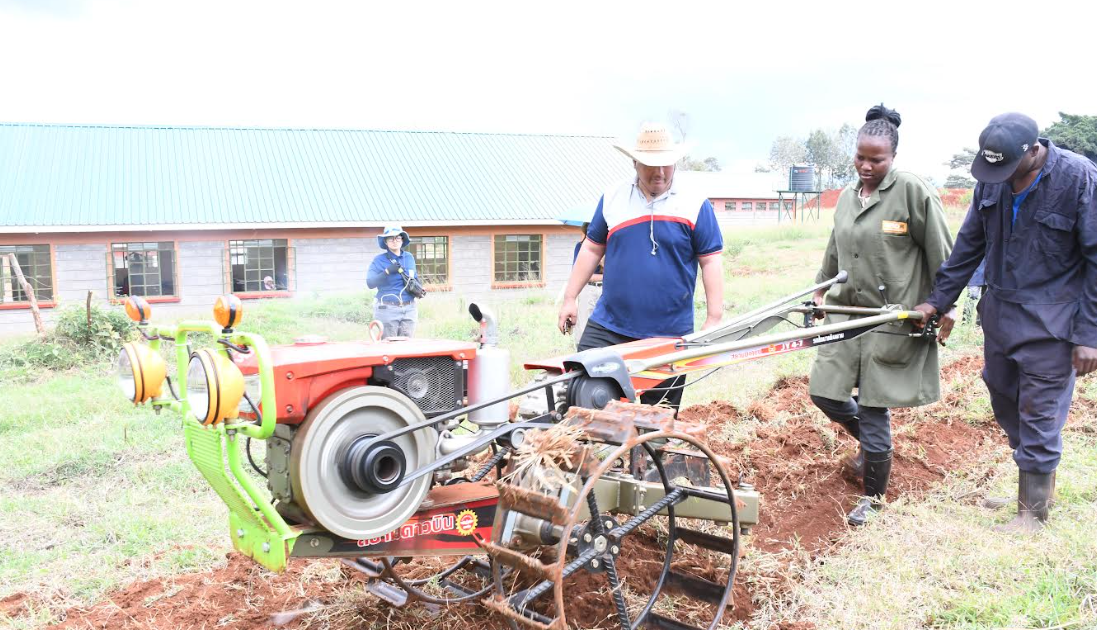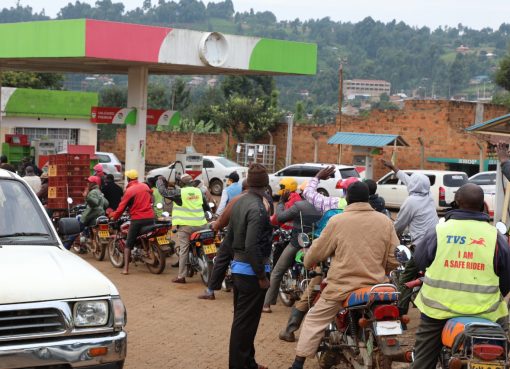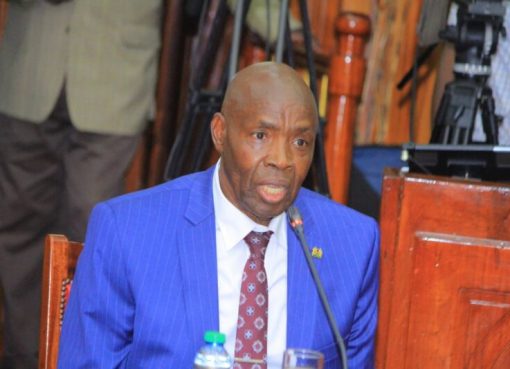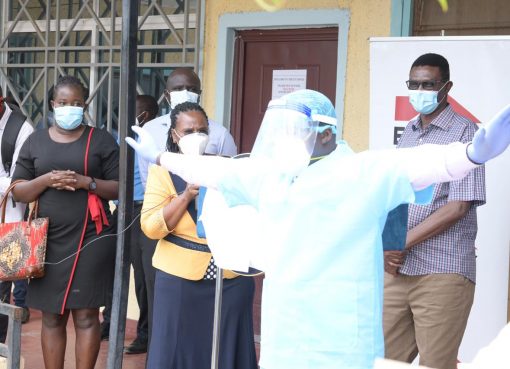Kenya is partnering with the Royal Government of Thailand in promoting the uptake of simple mechanised farming practices to enhance food production in the country.
Through the cooperation which is being overseen by the Kenya School of Government and Thai International Cooperation Agency (TICA), farmers are being trained on the use of a Farming Utility Vehicle commonly referred to as a ‘walking tractor.’
The 12.5 horsepower single-stroke diesel engine equipment currently in operation in 17 other African countries is further expected to boost employment among the youth.
The unique long-handled two-wheel tractor was first developed in the late 1950s by late Thai King M.R. Debriddhi Devakul.
“Even the farmers are saying they would prefer the walking tractor over the bigger tractor because it provides jobs for everyone. If you have provided a big tractor that doesn’t provide jobs, you have eliminated 20 to 30 jobs. When you inspire the people and give them jobs, you boost the economy of the country,” said Shannon Lee Ferry, an advisor from the Federation of Thai Industries and one of the officials training farmers on the use of the equipment.
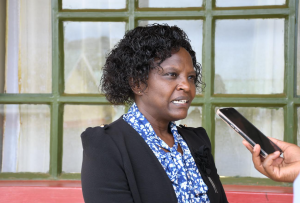
“It’s an inexpensive way to earn money for young people. Once the youth adopt this project, they will see that going to the city to look for jobs is quite not feasible,” he added.
Ferry, who has previously worked in several African and Asian countries promoting the use of the motorised mini-tractor, says the idea is gaining ground across many of the developing and third-world countries where much of the agricultural activities are done through human, animal, or rudimentary farm equipment.
He said the use of the tractor turned out to be a game changer that propelled the Southeast Asian nation into the list of leading exporters of rice in the world.
Apart from tillage, the FUV can also be employed in other farm activities, including fetching water for irrigation.
“Our machine is not only for land preparation. It can be used for pumping water, doing land preparation, and transporting from the farm to the homes. The idea of this machine was also to make it easy to repair so that a basic mechanic can literally repair it for you. It’s an inexpensive way to earn money for young people, and they will find that going to the city is quite not feasible,” he stated.
Kenya School of Agriculture Deputy Director Pauline Njagi says the institution has been working closely with the Thai Government in various innovative projects to help improve local food production through mechanisms that are affordable to the people.
To attain this, the institution has planned community field days every Thursday where locals are invited to be trained in best farming and animal husbandry practices.
Njagi noted that with the ever-increasing threat of land fragmentation in densely populated areas, especially in Central Kenya, there is a need for more research on new income-earning programmes that could create employment for young Kenyans who cannot find paid work.
“The Kenya School of Agriculture has been very passionate about partnering with other stakeholders so that we can grow and learn. We have been partnering with the Thai government through the Thailand International Cooperation Agency, and among the many things we have been partnering in is farm mechanization. We also focus on the youth since there is a very high level of unemployment in Kenya, and this is an equipment (FUV) we feel one can earn money from by preparing land for people. And from our calculations, we have seen they (youths) can make good money from it. So, it is an equipment we can highly recommend to the youth,” she said.
Eng. Liban Bullo, who is Head of Research and Consultant at the institution, said they were looking forward to partnering with like-minded stakeholders in order to come up with more progressive innovations that could be a game changer to the way farmers conduct their activities in the eight agricultural ecological zones in the country.
He said the four-day training currently underway at the institution would therefore go a long way in disseminating crucial lessons to the learners that could be employed in boosting farming in the rural areas.
“Currently, we have been very focused on our lands, which have been very fragmented, taking our land to an average of 0.8 acres. We are looking at a Utility Vehicle that can be able to do several operations, and so this vehicle comes with a trailer; it has a tiller, a rigger, a planter, and a plough. And to add more to that, it comes with water trumps. The vehicle will be a game changer for food production and increase the acreage through the Bottom-Up Economic Transformation Agenda,” he added.
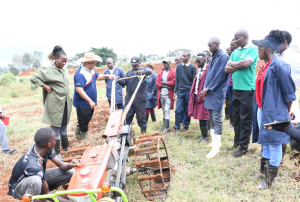
Kenya entered into a three-year bilateral agreement with the Royal Government of Thailand last year to enable the country to benefit from improved food and animal production practices.
In the deal, inked on July 9 last year, the Thai government was to train Kenyan scientists on modern and emerging agriculture technologies via existing state institutions under a knowledge transfer partnership.
Then, Thai Ambassador to Kenya Sasirit Tangulrat, while at the Nyeri Kenya School of Agriculture where she had officiated the handing over of assorted agricultural equipment, tools, and exhibition materials to the centre, said she was hopeful the partnership would assist the country in tackling the current food crisis facing the country following six consecutive seasons of failed rains.
“The Royal Thai Embassy initiated them (the Kenya School of Agriculture) to set up this centre two years ago to further promote bilateral cooperation, particularly in the field of agriculture, and we agreed to help the Kenya School of Agriculture establish ground technology aimed at adding value to crops such as bananas and vegetables, as well as soil health, irrigation water management, and many more,” she said.
The envoy similarly disclosed that the Thai government would be dispatching a team of top crop scientists into the country from May for a two-week session where they will embark on training Kenyan agriculture students on improved farming technology.
Upon completion of the training, one Thai scientist was to remain in the country for two years to ensure the entire programme takes off and the trainees are able to disseminate skills to farmers across the country.
Ms. Tangulrat said the ultimate objective of the training was to leave a lasting bearing on how Kenya moves forward as far as improving her food reserves is concerned.
“Food security and climate change are among very key issues of concern in Kenya as well as for other countries, including Thailand as well. So, what we are intending to do in this learning centre is to share Thailand’s best farming experiences in agriculture development by using a very practical technology developed by Thailand, which I think will be a great feat to Kenya, and this will definitely be beneficial to the farmers and local people in the long run. I believe that it will help relieve the problem of drought and climate change,” she added.
By Samuel Maina/Wangari Mwangi


